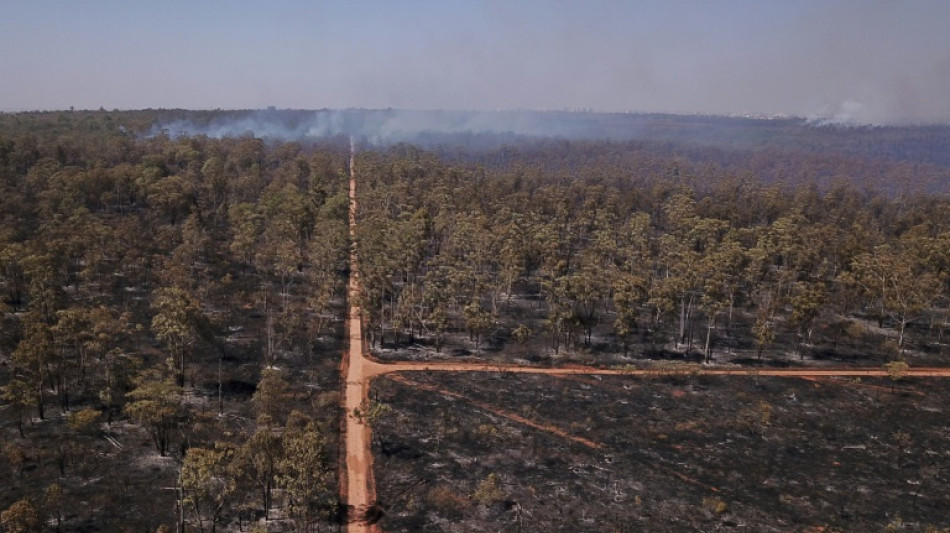
-
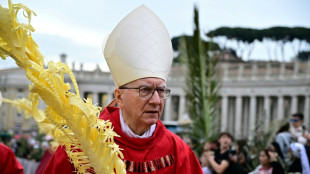 Pope's death sparks betting frenzy for successor
Pope's death sparks betting frenzy for successor
-
Germany expects zero GDP growth this year, blames Trump tariffs

-
 'Greatest-ever' Vardy to leave Leicester at end of season
'Greatest-ever' Vardy to leave Leicester at end of season
-
'They want to destroy us': Kyiv hit in biggest Russian attack in months
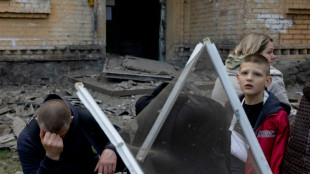
-
 Nissan forecasts huge annual net loss of up to $5.3 bn
Nissan forecasts huge annual net loss of up to $5.3 bn
-
Stock markets mostly fall as hopes of US-China trade deal dampen
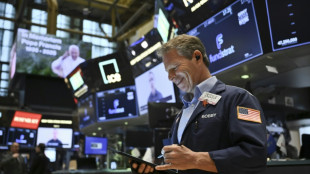
-
 Alcaraz withdraws from Madrid Open with injury
Alcaraz withdraws from Madrid Open with injury
-
Furious India eyes response to Pakistan after Kashmir attack

-
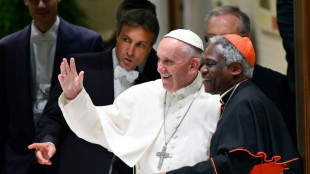 Africans eye a pope from among their own
Africans eye a pope from among their own
-
Three Chinese astronauts blast off for Tiangong space station

-
 Newcastle boss Howe returns to work after pneumonia
Newcastle boss Howe returns to work after pneumonia
-
Asian markets mixed as China dispels Trump talk of tariff negotiations
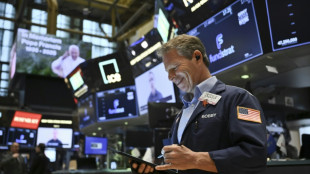
-
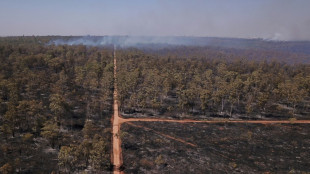 Countries could use forests to 'mask' needed emission cuts: report
Countries could use forests to 'mask' needed emission cuts: report
-
Zelensky cuts short South Africa trip after deadly attack on Kyiv
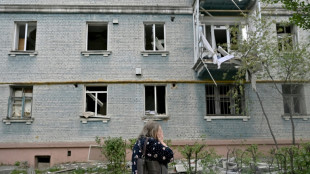
-
 Sri Lanka Buddhists overwhelm city in bid to see sacred tooth
Sri Lanka Buddhists overwhelm city in bid to see sacred tooth
-
Thousands gather for second day to view pope

-
 Teenage suspect in attack on rabbi sentenced to 16 months in prison
Teenage suspect in attack on rabbi sentenced to 16 months in prison
-
At Texas Trump-themed burger joint, diners eating it up

-
 Americans wary of Trump's economic about-faces
Americans wary of Trump's economic about-faces
-
Kashmiri students say they have been threatened in India after attack

-
 Ugandans kill migrating storks in desperation for food
Ugandans kill migrating storks in desperation for food
-
Georgia's rugby dreams built on wild folk game

-
 'Massive' Russian missile attack kills nine in Kyiv
'Massive' Russian missile attack kills nine in Kyiv
-
S.Africa welcomes Ukraine's leader in diplomatic shift

-
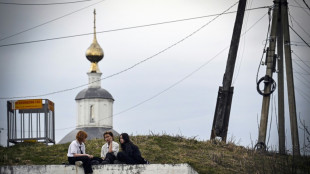 'We'll see': Russians outside Moscow have little faith in Trump
'We'll see': Russians outside Moscow have little faith in Trump
-
Tesla's EU sales plunge as Musk takes flak

-
 Chinese Catholics mourn Pope Francis, mull Church's future
Chinese Catholics mourn Pope Francis, mull Church's future
-
Russian missile attack kills nine in Kyiv

-
 Tatum-less Celtics take hard-fought victory as Cavs, Rockets win
Tatum-less Celtics take hard-fought victory as Cavs, Rockets win
-
Tigres fight back for draw with Cruz Azul in CONCACAF semi

-
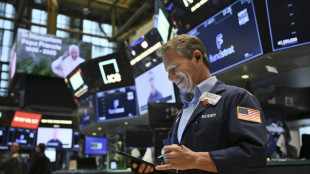 Asian markets mixed as Trump soothes Fed fears
Asian markets mixed as Trump soothes Fed fears
-
Inter return to tough Scudetto defence after treble dream dies

-
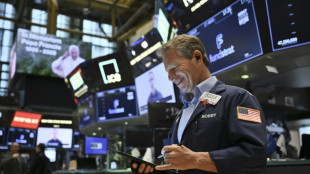 Asian markets mostly up as Trump soothes Fed fears
Asian markets mostly up as Trump soothes Fed fears
-
Australia to stockpile critical minerals in strategic reserve

-
 Former S. Korea president Moon Jae-in indicted for corruption: prosecution
Former S. Korea president Moon Jae-in indicted for corruption: prosecution
-
S. Korea's economy shrinks in first quarter as trade war hits exports

-
 Tanzania opposition leader due in court on treason charge
Tanzania opposition leader due in court on treason charge
-
Chinese business in Vietnam struggles with Trump tariffs uncertainty

-
 EU top diplomat Kallas seeks footing as Trump upends West
EU top diplomat Kallas seeks footing as Trump upends West
-
Bessent says 'no currency targets' in Japan tariff talks
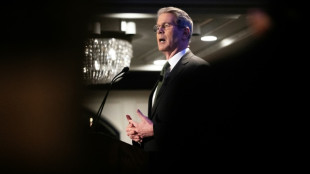
-
 Yemen's Huthis seek propaganda boost from deadly US strikes
Yemen's Huthis seek propaganda boost from deadly US strikes
-
Chinese astronauts set to blast off for space station

-
 Tatum-less Celtics win to join Cavs with 2-0 NBA playoff edge
Tatum-less Celtics win to join Cavs with 2-0 NBA playoff edge
-
SK hynix posts record profits thanks to strong AI demand

-
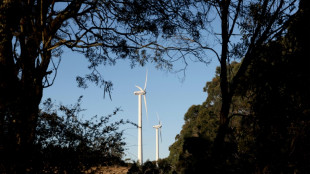 UK hosts global energy summit with renewables under attack
UK hosts global energy summit with renewables under attack
-
Huge crowds expected for second day of pope lying in state

-
 Nintendo bullish on Switch 2 pre-sales in Japan
Nintendo bullish on Switch 2 pre-sales in Japan
-
Argentina 'slum priests' take pope's message to the poor

-
 Russia launches Kyiv missile attack, hours after Trump blames Zelensky
Russia launches Kyiv missile attack, hours after Trump blames Zelensky
-
121 metre long cake gives a taste for records


Countries could use forests to 'mask' needed emission cuts: report
Major economies are overstating how much carbon their forests can absorb in a climate accounting fudge that could allow them to use even more fossil fuels, new research said Thursday.
The assessment singled out Brazil and Australia, and warned a lack of rules around accounting for forests and other land-based carbon sinks meant countries could "game the system" when reporting their national greenhouse gas emissions.
Scientists are still unclear about how carbon sinks might behave as the planet warms in future, and exactly how much heat-trapping carbon dioxide they might soak up from the atmosphere.
But that has not stopped countries from making their own assumptions and using those numbers in their national climate plans, which are due to be finalised to 2035 before the next UN climate talks in Brazil in November.
Climate Analytics, a policy institute that independently assesses these plans, said overly optimistic assumptions about how much CO2 forests might draw down was "masking the scale and pace of the fossil fuel emissions cuts needed".
This concealed the true effort needed to limit global warming to 1.5 degrees Celsius above pre-industrial levels, the ambition set out in the 2015 Paris climate agreement.
In the latest versions of its climate plan, Australia had leaned so heavily on forests to reduce its carbon footprint that it would amount to scaling back real cuts to emissions by 10 percent, Climate Analytics said.
Brazil, meanwhile, has announced its own pledge to cut emissions by 59 to 67 percent below 2005 levels by 2035, but has not defined the extent to which forests will help meet this goal.
Climate Analytics said structuring the target in this manner meant Brazil could still allow its energy emissions to double.
"If you don't use forests, then everything has to be done by the energy sector," said Claudio Forner, who co-authored the new research by Climate Analytics.
"But if you use all forests, then the emissions actually can continue growing."
He said the problem had arisen because the Paris climate deal allowed for countries to come up with their own assumptions about how much CO2 would be absorbed by their land.
"Without rules, countries just game the system," Forner told AFP.
- Assuming growth -
While forests will be crucial to global efforts to reduce planet-heating emissions, these estimates should be listed separately and not used to "offset" energy and industry emissions, he said.
That is because the complex processes by which forests and other land sinks absorb carbon are not as well understood as the role of fossil fuels in driving climate change.
Carbon stored in trees can also be released back into the atmosphere in the event of forest fires and other natural mechanisms.
There are also concerns that climate change and other human-driven factors are weakening the ability of forests and soils to soak up carbon.
"Science doesn't understand how the carbon sink is going to be behaving into the future," said Forner.
"And if scientists don't, I'm sure that most governments don't either, but they still just use assumptions of continuing growth to their numbers. If those assumptions are wrong, then you have this deficit."
Climate Analytics has previously estimated this uncertainty could amount to up to three billion tonnes of carbon dioxide -- roughly equivalent to Europe's emissions for a year.
UN climate experts have also raised broad concerns about a "significant discrepancy" between the way countries account for land in their climate plans and the methods used by scientists, which they said could be equal to around 15 percent of global emissions.
In a report last year, they said efforts to realign different accounting systems for land use CO2 emissions and removal would mean the world has less time than previously thought to reach net-zero emissions.
A.Jones--AMWN